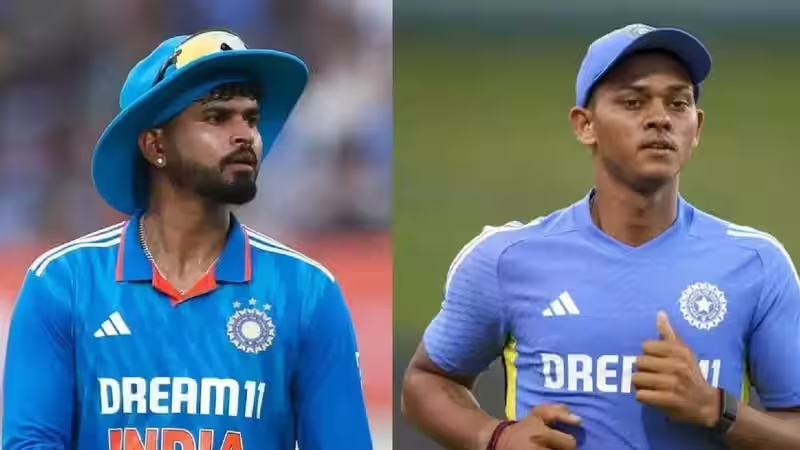In the high-stakes world of Indian cricket, where every selection is dissected and every omission is mourned, veteran pacer Ishant Sharma has pulled back the curtain on a harsh, often unspoken reality. His candid words, “Jo nahi hota na…” (“The one who doesn’t get selected…”), have struck a chord with fans and players alike, exposing the emotional toll of a system bursting with world-class talent.
The Weight of the Cap: A Selector’s Impossible Choice
Ishant Sharma, with his 105 Test caps and a career spanning over two decades, has seen it all—from the highs of victory to the silent agony of being left out. He recently addressed the intense public scrutiny faced by the national selection committee, not with criticism, but with a profound sense of empathy.
“The reality is, for every player you pick, you have to leave out another who is just as deserving,” Ishant explained. His statement highlights the impossible task before the selectors. India isn’t just producing good cricketers; it’s churning out exceptional ones at an unprecedented rate. This abundance of talent, while a blessing for the nation, is a curse for the selectors who must make heart-wrenching decisions.
“Jo Nahi Hota Na…”: The Fan Paradox
Sharma’s full quote, often paraphrased as “Jo nahi hota na, uski zyada baat hoti hai” (“The one who doesn’t get selected is talked about more”), points to a peculiar fan bias . He noted a frustrating trend where the chosen players are immediately under the microscope, their every mistake amplified, while those left out are romanticized as the “unfairly overlooked heroes.”
This creates a toxic environment where success is expected but rarely celebrated, and failure is punished mercilessly. The players who do make the cut often carry the invisible burden of proving their worth not just on the field, but against the ghost of the player who wasn’t selected.
A Table of Contrasts: The Life of the Selected vs. The Unselected
| Aspect | The Selected Player | The Unselected Player |
|---|---|---|
| Public Scrutiny | Under a constant, high-powered microscope. Every run, wicket, or error is analyzed. | Often shielded from direct criticism; their absence is seen as a selector’s error, not their own failure. |
| Fan Perception | Must consistently perform to justify their place. A few bad games can lead to calls for their axing. | Frequently hailed as the ‘next big thing’ or the ‘unlucky talent’. Their potential is endlessly debated. |
| Pressure | Immense pressure to deliver results immediately and consistently. | Pressure to keep performing in domestic cricket to stay in contention, but without the intense spotlight. |
The Emotional Toll on the Dressing Room
This dynamic doesn’t just affect the fans; it seeps into the team environment. A player walking into the dressing room knows that their presence means a friend, a competitor, and a fellow warrior has been left behind. Ishant’s insight reveals a layer of camaraderie and shared pain that is rarely visible to the outside world.
His comments come at a time when Indian cricket is in a fascinating state of transition, with a new generation of stars like Shubman Gill and Rishabh Pant shouldering the legacy of legends. The selection debates around these young stars are fiercer than ever, making Ishant’s message all the more relevant .
Conclusion: A Call for Empathy
Ishant Sharma’s “Jo nahi hota na…” is more than just a quote; it’s a plea for a more empathetic cricketing culture. It’s a reminder that behind every team sheet is a human story of triumph and heartbreak. As fans, our role isn’t just to demand winners, but to understand the complex, often painful, machinery that produces them.
